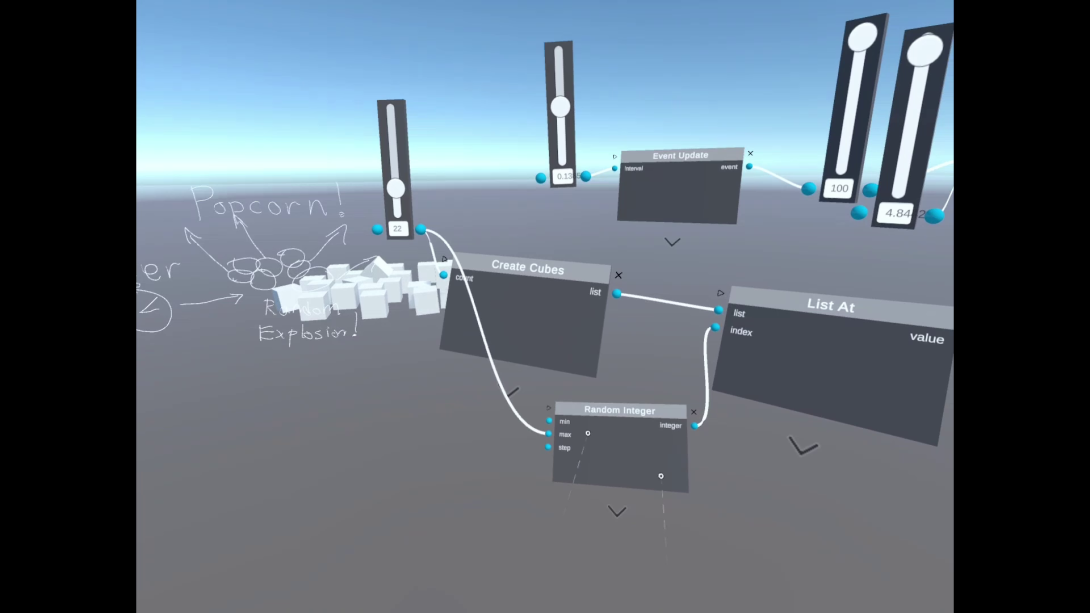A Platform for Embodied Coding in Virtual and Augmented Reality
The increasing sophistication and availability of Augmented and Virtual Reality (AR/VR) technologies wield the potential to transform how we teach and learn computational concepts and coding. This project develops a platform for creative coding in virtual and augmented reality. The Embodied Coding Environment (ECE) is a node-based system developed in the Unity game engine. It is conceptualized as a merged digital/physical workspace where spatial representations of code, the visual outputs of the code, and user editing histories are co-located in a virtual 3D space.
It has been theorized that learners’ abilities to understand and reason about functions, algorithms, conditionals, and other abstract computational concepts stem in part from more fundamental sensori-motor and perceptual experiences of the physical world. Our own work, for instance, has revealed that computer science (CS) educators incorporate a wide range of metaphors grounded in tangible experience into their lessons on computational concepts, such as demonstrating sorting algorithms with a deck of cards or the transfer of information between functions by throwing paper airplanes. Our long-term research aims center on the question of how a coding platform that supports these types of embodied conceptual phenomena can make learning to code become a more intuitive process.
